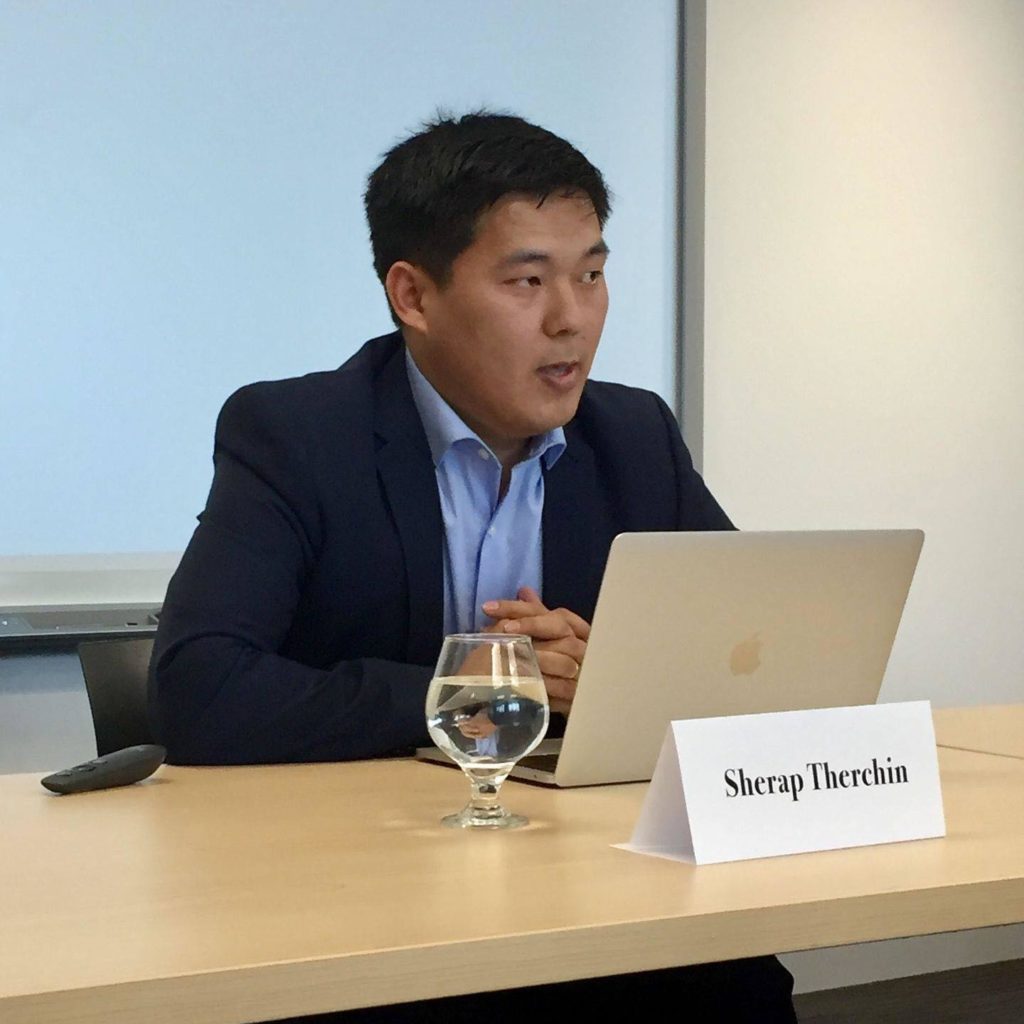The Canada Tibet Committee (CTC) is a federally-registered, non-governmental organization founded in 1987. The CTC office is located in Montreal, Quebec.
Our Mission
The Canada Tibet Committee defends and promotes human rights and democratic freedoms of the Tibetan people. The CTC monitors developments inside Tibet and builds public awareness in Canada through its outreach activities. The CTC encourages support for Tibet from the Government and Parliament of Canada.
The Canada Tibet Committee achieves its goals by:
- Engaging current foreign policy debates in Canada;
- Meeting with parliamentarians and government officials;
- Organizing policy seminars and cultural events;
- Conducting research and publishing reports;
- Collaborating with like-minded organizations across Canada.
Our Vision
The goal of the CTC is to work with Canadian institutions and stakeholders, as well as the Central Tibetan Administration (CTA), to promote and support human rights for Tibetans across the PRC. Of utmost importance is the freedom for Tibetans to practice their religion, culture, and language without hindrance, as well as the ability to protect and maintain the sensitive ecosystems of the high plateau. These rights are framed within the constitution of the People’s Republic of China (PRC) but are systematically denied to Tibetans.
Our Values
- Non-violence, tolerance, and compassion as our strategy;
- Volunteerism; openness; and integrity as our method;
- Respect for the Tibetan people’s democratic process as our guiding principle.
Our Policies
- Environmental policy
The Canada Tibet Committee is committed to the Dalai Lama’s vision of environmental stewardship and seeks to implement his vision of universal responsibility in all aspects of our work.
The Canada Tibet Committee will identify and purchase environmentally preferable supplies and services where economically feasible. The Canada Tibet Committee will strive to minimize pollution and waste, buy environmentally friendly products, and encourage environmentally preferable transportation.
The Canada Tibet Committee will comply with the laws and regulations enacted by the Government of Canada. We will encourage those acting on behalf of the organization to meet our standards of environmental performance.
Our Directors, volunteers and employees will receive a copy of this policy and will be involved in supporting its goals.
- Gender policy
The Canada Tibet Committee participated in the UN Fourth World Conference on Women in 1995 and actively contributed to its outcome document. Our organization views women’s rights as a priority of human rights law as articulated in the UN Convention on the Elimination of all forms of Discrimination against Women, and the Convention on the Rights of the Child.
The Canada Tibet Committee will advance gender equality practices within its organizational structure through careful attention to the appointment of Directors and management of human resources. The Canada Tibet Committee will create and pursue a gender sensitive work environment.
In the exercise of its external activities, the Canada Tibet Committee will strive to apply gender analysis within its research and reporting activities, and take into account the differing impacts that human rights violations and a democratic deficit have on women and men.
Our Directors, volunteers and employees will receive a copy of this policy and will be involved in supporting its goals.
- Privacy policy
The Canada Tibet Committee (CTC) respects the privacy of its support community and does not sell, rent or share our e-mail lists or personal data to anyone or any organization. We use a variety of security measures to protect against the loss, misuse and alteration of data used by our system.
We record information about the pages viewed by all of our website visitors. This data includes internet protocol (IP) addresses, browser type, internet service provider (ISP), referring/exit pages, platform type, date/time stamp, connection speed, read time, display time and number of clicks. We use this data, in aggregate form only, to compile statistics and reports for the CTC, and to improve the online experience for all visitors.
The CTC only reads cookies specifically written for our site and does not use cookies to track a user’s internet history on other sites. If you donated money online, we request only the information needed to complete the processing of that transaction. The information contained in the database can be used only for official CTC business such as informational mailings and other correspondence.
If you wish to have any of your personal information removed from our databases, or if you no longer want us to send any further communications to you, send an e-mail to ctcoffice@tibet.ca.
E-Newsletter subscriptions: E-newsletters are sent only to users who choose to provide us with their email address. Our newsletter subscriber database is not sold, rented or otherwise shared with any other parties. Subscribers wishing to update their contact information, or opt out of receiving newsletters, may use our online subscriber services.
Fraud and crime prevention: The CTC reserves the right to co-operate with local, national, or international law enforcement or other authorities in the investigation of improper or unlawful activities and this may require the disclosure of personal information. If such an investigation requires disclosure of personal information on file in our records, we may be required by law to cooperate. We also reserve the right to report improper or unlawful user activities on our site, which may require the disclosure of personal information relating to those individuals conducting such improper or unlawful activities.
Links: This web site contains links to other sites or e-mail addresses. This privacy statement only applies to information collected by our web site. We are not responsible for the privacy practices and/or policies of these or any third parties, nor do we necessarily agree with or endorse the opinions or positions they express. Links are provided for information only.
This privacy policy is effective November 25, 2007.
Our Team
Like many non-governmental organizations, the CTC relies on volunteers to carry out its broad scope of activities. The CTC has one paid staff person (part time) who is the Executive Director. Other staff members work in a volunteer capacity.
Board of Directors

Samphe Lhalungpa (Chair)
based in Ottawa
Samphe LhalungpaSamphe Lhalungpa was born and grew up in India where he lived with his Tibetan parents until settling in Canada in 1974. Following 7 years in the Canadian federal public service, including at the Asia branch of the Canadian International Development Agency, Samphe joined the United Nations in 1981 serving with UNICEF in Burma, Sudan, Bangladesh, Nepal, India, and Turkmenistan. His areas of expertise include the advancement of health and education programs in conflict zones, the promotion of multilingual education for tribal communities, and the use of social data for policy development. Samphe received a B.A. in Government and Politics from City University in the UK, followed by a M.A. in Public Administration from Queen’s University in Canada. He also studied journalism at Ottawa’s Carleton University and Development Communications at Cornell University in the U.S. He speaks English, Hindi, Nepali, and Tibetan with knowledge of French, Arabic, Burmese, and Bengali. Now retired, Samphe lives in Ottawa.

Luisa Durante (Vice-Chair)
based in Montreal
Luisa Durante is a graduate of International Development Studies and Anthropology from Trent University, Ontario. Luisa is currently an international development consultant, possessing over 20 years of experience working with non-government organizations and not-for-profits in Canada and internationally in the areas of human rights, health, and organizational development. She has field experience working in several countries and continents around the world. She was drawn to the mission of the CTC in promoting democratic freedoms and the expression of the Tibetan people and the vision of HHDL. Luisa is a long-standing member of the CTC and has served in various volunteer positions with the Montreal branch as well as stepping in as interim Executive Director at the National Office during 2005/6.

Eliza von Baeyer
based in Ottawa
Eliza von Baeyer (she/her) is new to the CTC Board, but not to Tibetan issues. Her dissertation was titled: Picturing a new life: An arts-based inquiry into the lived experiences of Tibetan women who resettled in Ottawa, Canada. The research study explored the lived experiences of several Tibetan women who resettled in Canada with the Tibetan Resettlement Project Ottawa (TRPO) between 2013 and 2017. Eliza was involved with TRPO while it was active and has been on the Board of the Ottawa Friends of Tibet for the last several years.
Professionally, Eliza has 20+ years of experience in public and private organizations in the area of results-based management, including: evaluation research, organizational psychology assessments, change management, executive coaching, and applied research. She holds a PhD in Organizational Development and Change and a certificate in Evidence-Based Coaching from Fielding Graduate University in Santa Barbara, CA. In her spare time, Eliza enjoys creating jewelry and collage art.
Staff

Sherap Therchin, Executive Director
Sherap joined the Canada-Tibet Committee in January 2018 as its Executive Director. He was born and grew up in Tibetan refugee communities in Nepal and came to Canada in 2015. In Nepal, Sherap worked as Assistant Deputy Director of the Himalayan Society for Youth and Women Empowerment where he designed and monitored projects to empower indigenous women. He later moved to India to serve as Deputy Chief of Tibet Fund India, with responsibility for oversight and evaluation of USAID projects supporting education and healthcare in Tibetan refugee communities. Academically, Sherap obtained a Bachelor of Business Management from Bangalore University, and Master of Business Administration degree from PES University, India. In Canada, Sherap obtained a second Master degree in Entrepreneurship and Innovation at Queen’s University. He has also worked in the office of Canadian MP Arif Virani, as a proposal consultant at Agriteam Canada Ltd.
Contact Sherap at: sherap@tibet.ca
Eva Cirnu, Coordinator, Francophone Outreach
Eva is a communications professional with expertise in project management and promotional design (graphic and website design). Before joining the CTC, Eva developed and implemented communications strategies for civil society organizations in Haiti, Nepal, and Madagascar. Eva is the Director of a documentary film entitled “The Tibet Within” released in 2013. She currently lives in Dharamsala, India.

